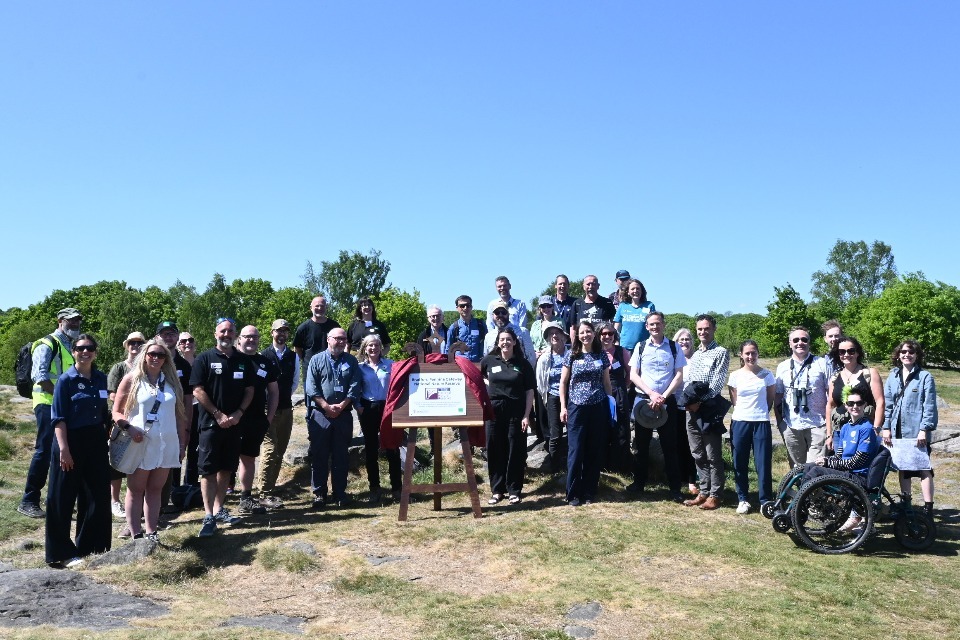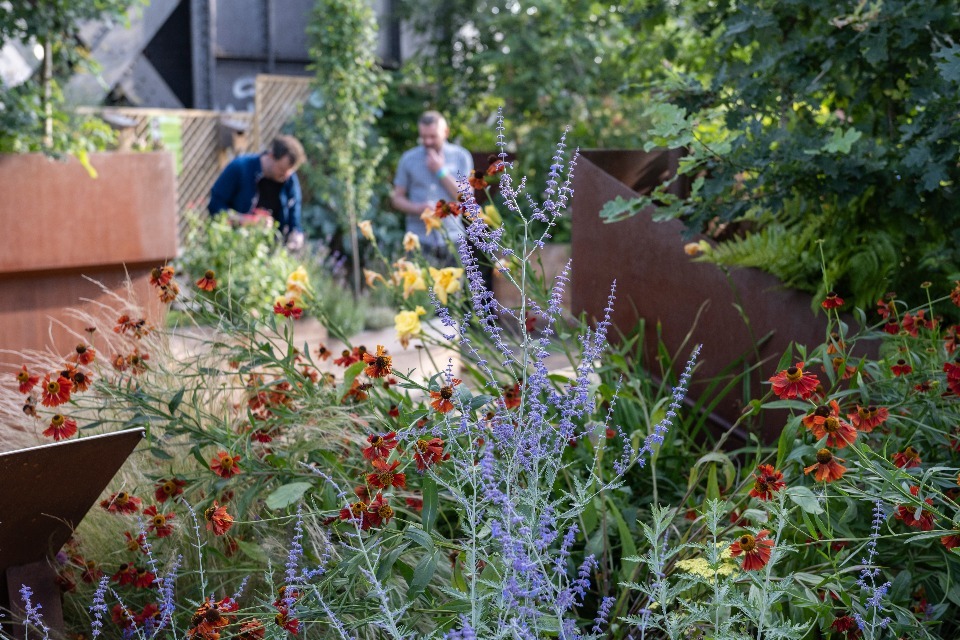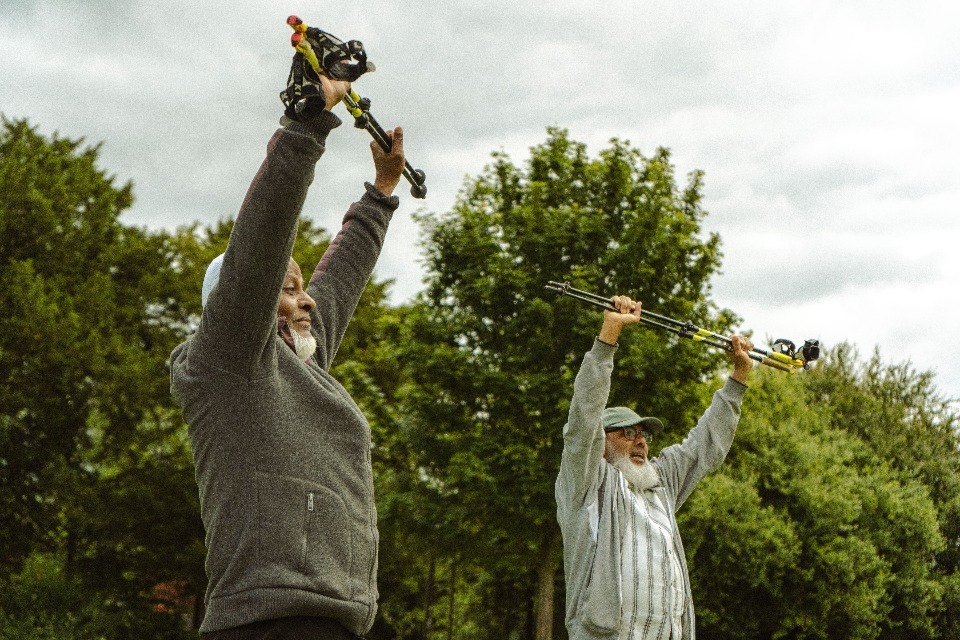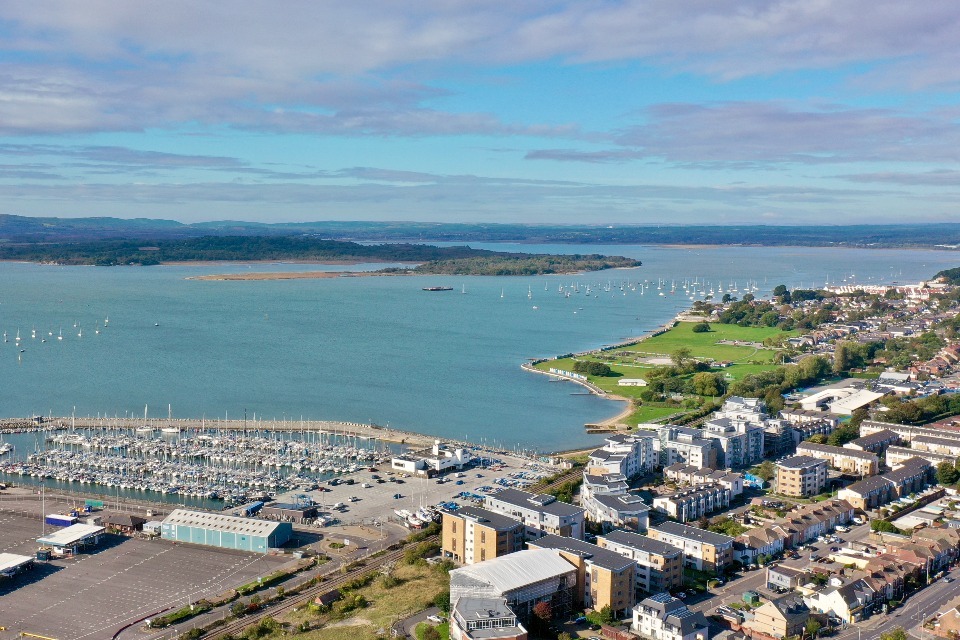Natural England's Strategy: Case Studies
Case studies relating to Natural England's Strategy: Recovering Nature for Growth, Health and Security.
These case studies give an example of each outcome set out in the Natural England’s strategy.
- Outcome 1: ‘Recovering Nature’ in action: Bradford and South Pennines
- Outcome 2: ‘Building Better Places’ in action: Greater Manchester’s living network
- Outcome 3: ‘Improving Health and Wellbeing’ in action: Green Social Prescribing (GSP)
- Outcome 4: ‘Delivering Security through Nature’ in action: Lyscombe Farm, Dorset
Outcome 1: ‘Recovering Nature’ in action: Bradford and South Pennines
Working in partnership with the City of Bradford Metropolitan District Council.
Bradford has embraced nature with a focus on increasing the scale and quality of nature and that everyone can benefit from. Natural England played a key role in bringing partners together to tackle some of the root causes of nature’s decline.
This partnership created a shared vision for nature recovery, shaped by local priorities and ecological needs. A key element was the community’s vision for recovery. This vision was translated into plans and opportunities that sparked multiple projects addressing biodiversity loss, climate resilience, and community well-being.
Natural England helped turn the local vision into reality. The Bradford Pennine Gateway National Nature Reserve (NNR) connects eight key sites including woodland, moorland, and heath. It is creating healthier ecosystems and a more joined-up landscape as well as supporting rare and endangered species like the curlew and golden plover.
This Super National Nature Reserve is helping build momentum for nature recovery across Bradford. New ideas and initiatives are continually emerging, building on Natures role as a key part of the Bradford 2025 City of Culture Programme.
Cllr Alex Ross-Shaw, Bradford Council
Bradford Council has declared eight new Local Nature Reserves, linking the super NNR to the city centre, where new landscape led green spaces further enhance the natural network and people’s connection to nature. These spaces are part of a wider plan to restore natural systems and improve ecosystem health across the district, creating nature-rich areas for people to enjoy, supported from community and private funding.
This project has delivered multiple benefits, including improvements in health and wellbeing with the launch of green therapy activities and increased access to wilder spaces. The innovative approach also aligned with pioneering local growth plans which highlighted nature as a driver for inclusive growth.
Bradford is now leading the way in nature recovery, transforming lives and landscapes. It is a powerful demonstration of restoring natural systems, connecting protected areas, and improving ecosystem health to deliver nature recovery and lasting change.
It shows nature thriving, with landscapes becoming stronger, healthier, and more resilient.

Bradford Pennine Gateway National Nature Reserve. Credit: Natural England.
Outcome 2: ‘Building Better Places’ in action: Greater Manchester’s living network
Working in partnership with the Greater Manchester Combined Authority.
Greater Manchester is using green infrastructure to create healthier, more investable places, helping 2.83 million people access nature-rich areas.
CyanLines is a bold initiative that brings their Green Infrastructure and Local Nature Recovery Strategy to life. It will develop 100 miles of parks, rivers, canals, and green corridors over 10 years. Starting in the city centres of Manchester and Salford it will deliver a greener, healthier and more climate-resilient city for the future.
Natural England’s Green Infrastructure Standards and mapping tools helped partners design routes to strengthen urban ecology and improve public health. Natural England has supported the local authorities and partners giving expert advice on biodiversity, habitat connectivity, and green infrastructure planning. Helping to create a walkable, bikeable network that links communities with nature.
CyanLines is a strong example of nature being integrated into development and investment plans. It is helping to reshape how urban space is planned and used, bringing nature into the heart of regeneration and growth. The partnership highlights how regulators, investors, and government can work together to help the economy and people by recognising nature as an asset.
Bringing nature closer to local people will strengthen the local economy and boost growth, saving Greater Manchester £800 million annually through reduced air pollution and lowering the risk of poor health by 45%. Improved public health reduces health sector costs and costs to business. It also unlocks economic potential for local businesses and boosts tourism by drawing people into the area.
Manchester and Salford City Councils have secured Nature Towns and Cities funding which will boost efforts aligned with the CyanLines vision. Natural England is now supporting Greater Manchester’s Nature Towns and Cities Accreditation to further embed nature into local planning and investment in the future.
Our commitment is to turn the tide, restore wildlife across Greater Manchester, and make sure everyone has a nature-rich green space near where they live…..to make Greater Manchester a greener and healthier city region for all our residents.
Andy Burnham Mayor of Greater Manchester

First anniversary celebration of Castlefield Viaduct, Manchester. Credit: National Trust Images, Paul Harris.
Outcome 3: ‘Improving Health and Wellbeing’ in action: Green Social Prescribing (GSP)
Working in partnership with Defra, Department of Health and Social Care, Sport England, NHS England, National Academy for Social Prescribing.
Green Social Prescribing (GSP) is helping more people access and connect with nature where they live. This is improving both mental and physical health through supported nature-based activities delivered by local community groups including walking, gardening, and conservation volunteering.
The Cross-Government Preventing and Tackling Mental Ill Health through GSP Programme shows how nature can be built into health systems. It has delivered 8,500 GSP referrals across seven pilot locations in England, with strong engagement in communities experiencing health and social inequality. Participants reported significant improvements in mental health – including reduced anxiety and depression - demonstrating nature’s integral role in public health. For every £1 invested, the programme delivered £2.42 in benefits.
Alongside partners, Natural England played a central role in shaping and delivering the programme and providing evidence and research - including work commissioned by the Department of Health and Social Care (DHSC). We supported delivery via national and local staff and worked in partnership to create a national e-learning resource for GPs. We ensured nature-based health solutions were reflected in key government strategies and local plans, giving communities more opportunities to shape and care for nature in their area.
There is now growing recognition of the value of nature connection in addressing both mental health challenges and health inequalities. GSP is strengthening partnerships between health and nature sectors, benefiting both people and the environment as we see more community-led nature recovery and increasing nature on NHS sites and public land.
Often people will come to us with isolation or loneliness and actually getting them out into greener spaces, interacting with other people is all they need to lift them enough to enable them to function at the level that is possible for them again.
Community GP
It changed my life if I’m honest, it’s made a real difference!
GSP participant
This work is bringing nature closer to people, improving wellbeing, and building stronger connections between people and the natural environment.

Bangladeshi men’s Nordic walking group. Credit: Keyane Keycreationz with thanks to Health Links, of Sirona Care and Health.
Outcome 4: ‘Delivering Security through Nature’ in action: Lyscombe Farm, Dorset
Working in partnership with Dorset Wildlife Trust.
Lyscombe Farm in Dorset is harnessing nature to offset the impacts of much needed local housing development. By restoring ecosystems and changing land use, the project is boosting the local economy and contributing to water security, while creating a very special and beautiful place that will be there for people to enjoy for generations to come.
Natural England staff brought together Dorset Wildlife Trust, the local authority, and private investors to create a shared solution to water pollution, nature loss, and housing development in the Poole Harbour catchment.
The result was a bold plan to transform a commercial farm into a wildlife-rich National Nature Reserve. Shared aims focused on restoring nature, increasing public access, reducing pollution, and supporting the local economy by enabling housebuilding and wider development.
Land management was adapted to adopt nature-friendly farming practices, alongside the restoration of the river headwaters to reduce nutrient pollution flowing into the River Piddle and Poole Harbour. The farm is now improving soil health, supporting biodiversity, and contributing to food security.
The project is funded through a blend of public and private investment, including agri-environment schemes and nature markets. Through Natural England’s Nutrient Mitigation Scheme, developers are now buying nutrient credits linked to the farm, unlocking new housing while protecting the environment. This shows how nature can be a cost-effective, long-term solution for climate resilience and resource security.
Lyscombe is an excellent example of a blended finance initiative, bringing together statutory, charitable and private funding to deliver benefits for nature, people and sustainable development. Making space for nature and people is vital in addressing climate change and the ecological crises, projects like Lyscombe ensure that development also contributes to environmental improvements.
Brian Bleese, chief executive at Dorset Wildlife Trust

Poole Harbour. Credit: Edward Parrott.